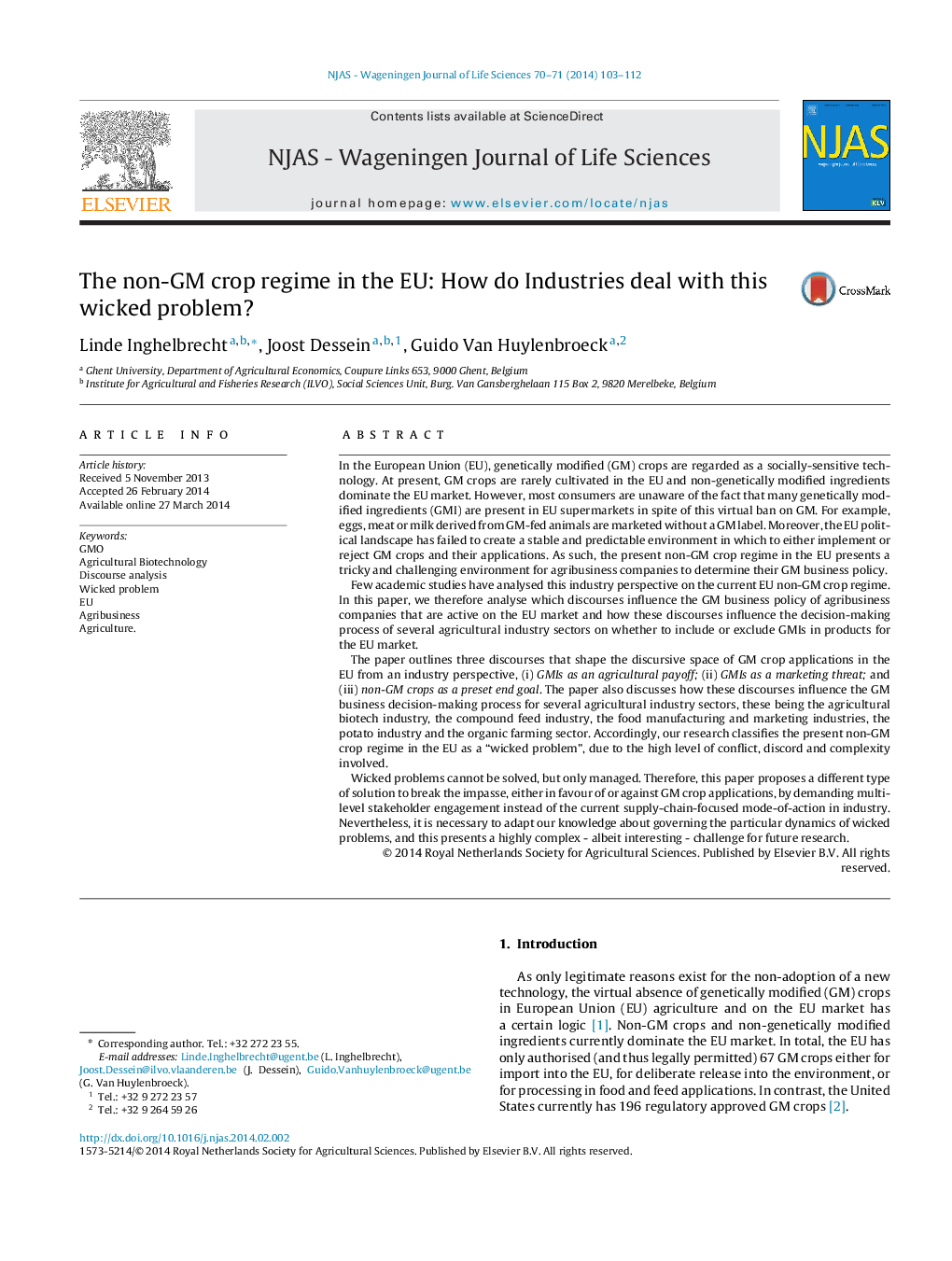| کد مقاله | کد نشریه | سال انتشار | مقاله انگلیسی | نسخه تمام متن |
|---|---|---|---|---|
| 4501255 | 1624064 | 2014 | 10 صفحه PDF | دانلود رایگان |
• Three discourses shape the discursive space of GM crop applications in the EU.
• The present ‘fictitious’ or ‘apparent’ EU non-GM crop regime is a wicked problem.
• Breaking the impasse on GM crops in the EU requires a new type of solution.
• Through multilevel stakeholder engagement, a shared understanding must be generated.
• Agribusiness companies must adapt their current supply-chain-focused mode-of-action.
In the European Union (EU), genetically modified (GM) crops are regarded as a socially-sensitive technology. At present, GM crops are rarely cultivated in the EU and non-genetically modified ingredients dominate the EU market. However, most consumers are unaware of the fact that many genetically modified ingredients (GMI) are present in EU supermarkets in spite of this virtual ban on GM. For example, eggs, meat or milk derived from GM-fed animals are marketed without a GM label. Moreover, the EU political landscape has failed to create a stable and predictable environment in which to either implement or reject GM crops and their applications. As such, the present non-GM crop regime in the EU presents a tricky and challenging environment for agribusiness companies to determine their GM business policy.Few academic studies have analysed this industry perspective on the current EU non-GM crop regime. In this paper, we therefore analyse which discourses influence the GM business policy of agribusiness companies that are active on the EU market and how these discourses influence the decision-making process of several agricultural industry sectors on whether to include or exclude GMIs in products for the EU market.The paper outlines three discourses that shape the discursive space of GM crop applications in the EU from an industry perspective, (i) GMIs as an agricultural payoff; (ii) GMIs as a marketing threat; and (iii) non-GM crops as a preset end goal. The paper also discusses how these discourses influence the GM business decision-making process for several agricultural industry sectors, these being the agricultural biotech industry, the compound feed industry, the food manufacturing and marketing industries, the potato industry and the organic farming sector. Accordingly, our research classifies the present non-GM crop regime in the EU as a “wicked problem”, due to the high level of conflict, discord and complexity involved.Wicked problems cannot be solved, but only managed. Therefore, this paper proposes a different type of solution to break the impasse, either in favour of or against GM crop applications, by demanding multi-level stakeholder engagement instead of the current supply-chain-focused mode-of-action in industry. Nevertheless, it is necessary to adapt our knowledge about governing the particular dynamics of wicked problems, and this presents a highly complex - albeit interesting - challenge for future research.
Journal: NJAS - Wageningen Journal of Life Sciences - Volumes 70–71, 6 December 2014, Pages 103–112
